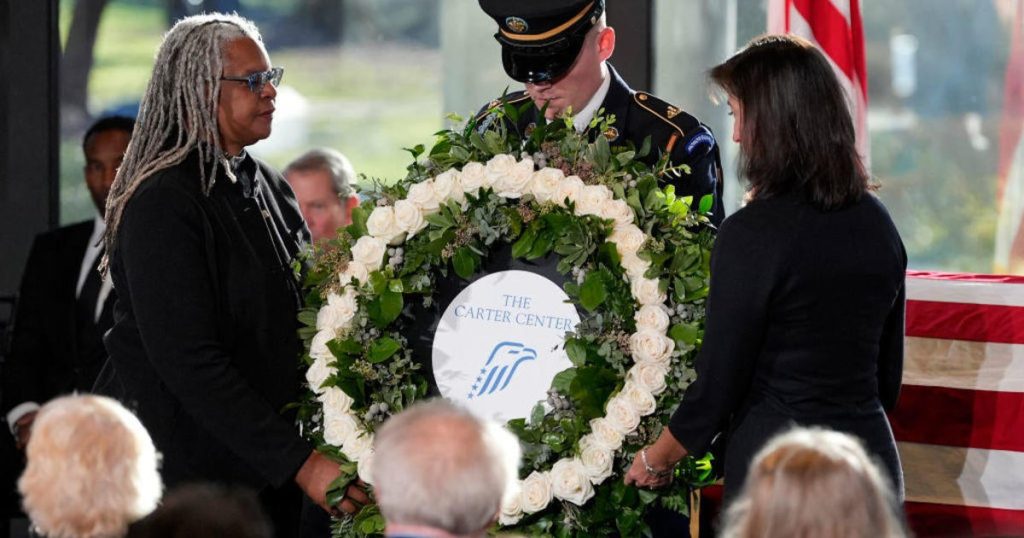The late President Jimmy Carter was honored at a memorial service at the Carter Presidential Library and Museum in Atlanta, Georgia. Dr. Meredith Evans, the director of the museum, shared a personal story about how she had written a letter to Carter when she was just 4 years old, sending him a dollar and a penny to help him be president. She eventually got her money back and now serves as the director of the museum, where she works to highlight Carter’s compassion and authenticity that are woven throughout the exhibits. The museum showcases Carter’s childhood in Plains and nearby Archery, where he experienced the difficulties of segregation and the support of his community that helped propel him to the governorship of Georgia and ultimately the White House.
Carter’s presidency was marked by achievements like the Camp David Accords, where he negotiated a peace agreement between Israel and Egypt in 1978. Despite the controversies and challenges he faced, including record inflation and the Iran hostage crisis, Carter continued his work in humanitarian efforts after leaving office. He established the Carter Center, which focuses on issues like global health and peace, and was awarded the Nobel Peace Prize in 2002. According to Evans, Carter accepted the prize with joy and humility, seeing himself as equal to others and not better than anyone else.
The museum highlights Carter’s trailblazing actions, such as being the first president to walk in his Inaugural Parade by getting out of the limo, and his dedication to promoting peace and resolving conflicts. Carter’s ability to bring two arch enemies together to sign a treaty is considered one of his greatest accomplishments. Despite his defeat in the 1980 election against President Ronald Reagan, Carter’s legacy as a humanitarian and peacemaker continued through his work with the Carter Center. His focus on peacebuilding and diplomacy earned him respect and admiration from people around the world.
Evans notes that Carter’s upbringing in a rural African American community shaped his understanding of racial segregation and the challenges faced by people of color. She emphasizes Carter’s ability to overcome obstacles and challenges to achieve success, including his journey to the presidency. The museum aims to showcase Carter’s life and legacy, from his humble beginnings as a peanut farmer in Plains to his global impact as a statesman and peacemaker. Through exhibits and artifacts, visitors can learn about Carter’s contributions to diplomacy, human rights, and global health, as well as his commitment to service and leadership.
Carter’s presidency may have been filled with controversies and challenges, but his dedication to promoting peace and resolving conflicts continued long after he left office. The Carter Presidential Library and Museum in Atlanta serves as a tribute to his legacy, showcasing his achievements as a world leader and advocate for humanitarian causes. Through exhibits and programs, visitors can learn about Carter’s impact on global issues and his ongoing commitment to making a difference in the world. As the director of the museum, Evans works to preserve and share Carter’s story, reminding visitors of his compassion, authenticity, and dedication to serving others.















